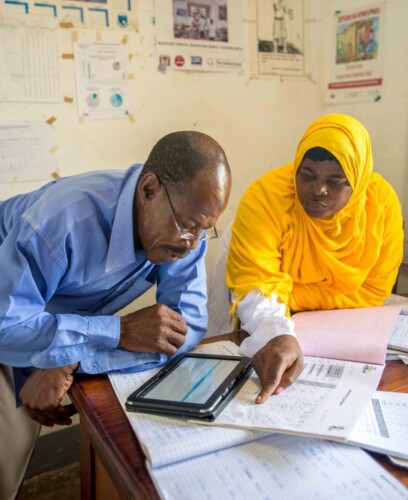Most arts nonprofits face a similar challenge: modify their programming and marketing efforts in order to manage aging audiences, technological disruptions, and changes in cultural consumption. Lyric Opera of Chicago…

The U.S.President’s Malaria Initiative (PMI), a U.S. government initiative created to dramatically reduce malaria deaths and illnesses across sub-Saharan Africa, set its sights on an important public health goal: consolidating, standardizing, and securely sharing data across more than two dozen partner countries to better inform its programs.
PMI, launched in 2005, equips and empowers partner countries to battle the mosquito-borne disease via cost-efficient healthcare interventions as well as technical and operational assistance. The initiative, led by the U.S. Agency for International Development (USAID) and co-implemented with the Centers for Disease Control and Prevention (CDC), emphasizes five focus areas:
PMI now operates across 27 partner countries in Africa and Southeast Asia’s Greater Mekong Subregion — areas collectively representing almost 90 percent of the global malaria burden. Beyond collaborating directly with host country Ministries of Health, PMI coordinates closely with the Global Fund to Fight AIDS, TB, and Malaria, the Bill and Melinda Gates Foundation, UNICEF, and other government agencies and organizations to support host countries’ malaria control, prevention, and education efforts. PMI also works with a wide array of non-governmental organizations (NGOs), including faith-based and community groups, academia, and the private sector.
As PMI grew in size and reach, the initiative identified the need to aggregate, clean, and map data across its global network. PMI also focused on how to easily and securely share the most timely and relevant malaria commodity data, as well as how to scale computationally intensive models to anticipate increases in malaria cases before they strike.
That’s when PMI looked to develop a data repository and began to work with a new partner: Civis Analytics.

Civis Platform is a flexible, scalable data management solution that makes it easy for government agencies, nonprofits, advocacy groups, and other mission-driven organizations to import, transform, analyze, and report on their data. The cloud-based Platform allows stakeholders throughout an organization to collaborate in a centralized environment to more quickly generate data-driven insights, and to close the loop on measurement, activation, and attribution.
Civis Platform provides PMI with a secure, unified, open-source solution for each level within and across the organization, including:
By adopting Civis Platform, PMI was additionally able to:

By using Civis Platform, PMI was able to establish a central repository to aggregate and analyze data from its partner countries, and to create an automated quarterly report pipeline and dashboard. The quarterly report pipeline employs a scalable method to process and standardize the data received to ensure that all data is reported in monthly time periods using a standard set of geographic and indicator names.
The geographic standardization process is backed by multiple database tables that contain the nearly 80,000 standard names and 200,000 variations in spelling, language, and known aliases of those standard names. This process can be applied to a variety of datasets to allow for data to be combined and compared across sources.
Platform also allowed PMI to boost its analytics capabilities, including:
Since 2006, PMI partner countries have driven a 26 percent decline in malaria case rates and a 43 percent decline in malaria death rates, boosting optimism for the disease’s eventual elimination and eradication. With PMI’s data now more centralized, standardized, and accessible, the battle against malaria has entered a new phase — and the disease doesn’t stand a chance of winning.

Civis Platform is a secure, collaborative environment for even the most distributed of teams.